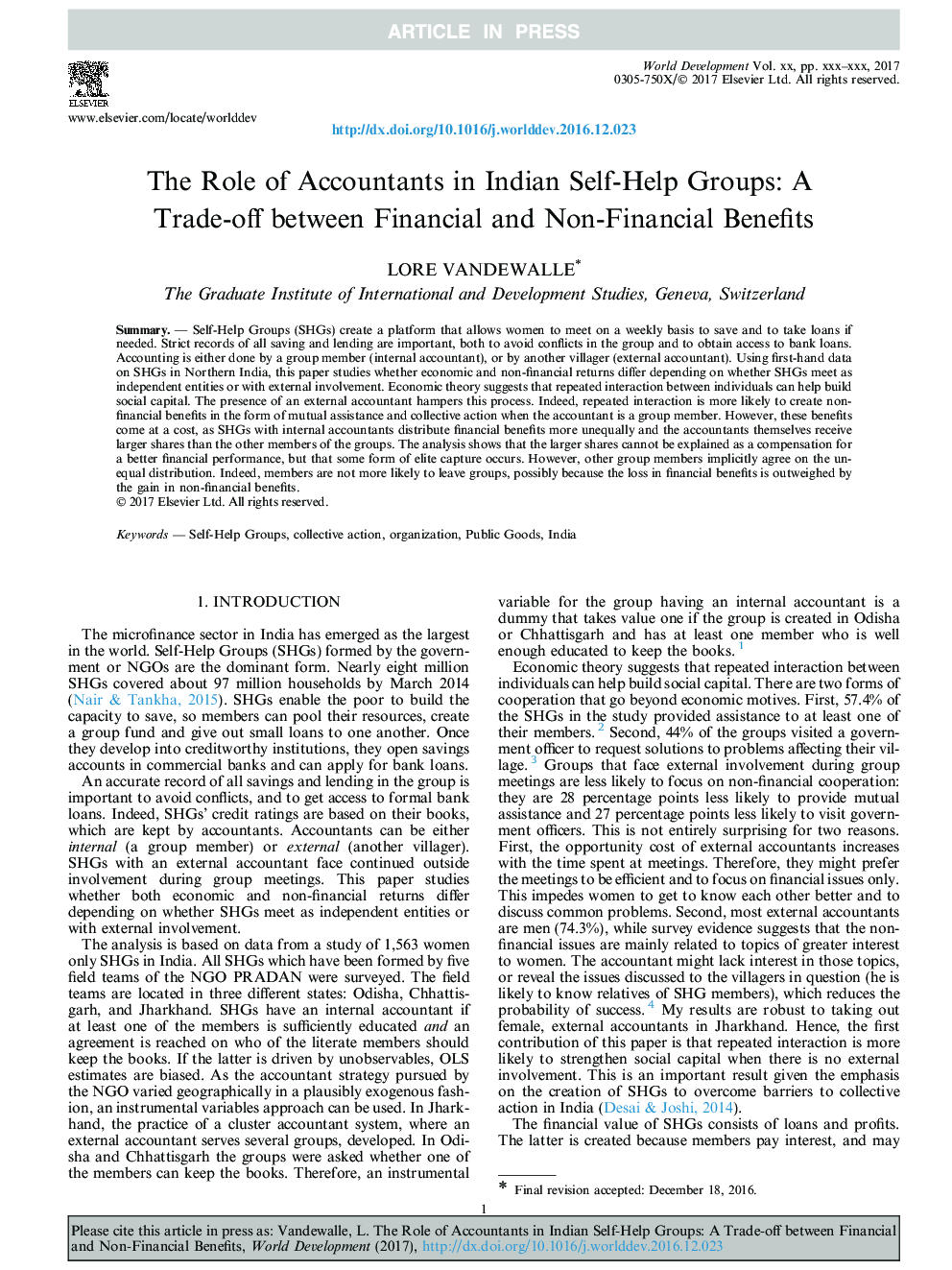| Article ID | Journal | Published Year | Pages | File Type |
|---|---|---|---|---|
| 5105300 | World Development | 2017 | 16 Pages |
Abstract
Self-Help Groups (SHGs) create a platform that allows women to meet on a weekly basis to save and to take loans if needed. Strict records of all saving and lending are important, both to avoid conflicts in the group and to obtain access to bank loans. Accounting is either done by a group member (internal accountant), or by another villager (external accountant). Using first-hand data on SHGs in Northern India, this paper studies whether economic and non-financial returns differ depending on whether SHGs meet as independent entities or with external involvement. Economic theory suggests that repeated interaction between individuals can help build social capital. The presence of an external accountant hampers this process. Indeed, repeated interaction is more likely to create non-financial benefits in the form of mutual assistance and collective action when the accountant is a group member. However, these benefits come at a cost, as SHGs with internal accountants distribute financial benefits more unequally and the accountants themselves receive larger shares than the other members of the groups. The analysis shows that the larger shares cannot be explained as a compensation for a better financial performance, but that some form of elite capture occurs. However, other group members implicitly agree on the unequal distribution. Indeed, members are not more likely to leave groups, possibly because the loss in financial benefits is outweighed by the gain in non-financial benefits.
Related Topics
Social Sciences and Humanities
Economics, Econometrics and Finance
Economics and Econometrics
Authors
Lore Vandewalle,
